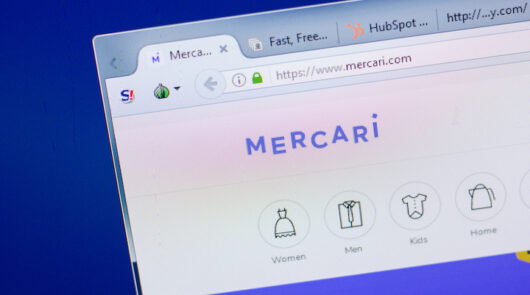New Zealand native health brand Eve Wellness has broken through the crowded world of supplements and wellness with conviction. In just a few years, the brand focused on hormone balance has gone from a niche direct-to-consumer venture to a household name, recently securing a coveted partnership with Chemist Warehouse. It is a case study in how challenger brands, akin to Eve Wellness, can leverage data, design and digital culture to rewrite the rules of retail. Beatrice Thorne was inspired
spired to start Eve Wellness after experiencing a hormonal health crisis.
When Thorne came off the contraceptive pill at age 26, her menstrual cycle disappeared for two years, and when it returned, “it brought with it a cascade of symptoms: acne, fatigue, anxiety, brain fog, hormonal headaches, low moods… you name it, I had it,” Thorne told Inside Retail.
Existing supplements brands that claimed to support hormonal issues often fell short of their promises and featured outdated packaging, according to Thorne. So, she started Eve to bridge the gap between clinical integrity and modern consumer storytelling.
Thorne and her team surveyed more than 14,000 women and discovered that 87 per cent were experiencing regular hormonal issues. That moment, she explained, turned frustration into purpose.
“We brought on scientists and built a lab from the ground up, launching at-home hormone testing that used custom-built software to deliver personalised, easy-to-understand reports,” Thorne explained.
“From the thousands of tests we ran, we saw patterns and we used those insights to shape our first supplements. In 2021, we launched our first product, and that was the beginning of Eve as you know it today.”
From DTC to aisle disruptor
For many wellness startups, online traction is the endgame. But for Eve, e-commerce was just the beginning.
By leveraging testing data, community feedback and an intrepid design language, the brand cultivated both credibility and emotional connection, setting the stage for a major retail play.
Breaking into Chemist Warehouse, however, wasn’t easy.
“We approached those early conversations knowing that the supplement aisle was due for a refresh,” Thorne recalled. “So many products were underdosed, overcomplicated or just plain boring, and that didn’t reflect the needs of real women. We were so confident in our offering that getting an initial ‘no’ was tough, but it only lit a fire in our bellies.”
The brand persisted, using waitlists, sell-outs and social proof to build its case.
“With a foundation of scientific credibility from our hormone testing and a deep understanding of women’s health, we showed Chemist Warehouse that we weren’t just another brand,” she said. “We were a movement, and we were ready to meet women where they were: on shelf, on trend and on their terms.”
The TikTok effect
While some brands pay for influence, Eve earned it. The brand’s growth has been catalysed by viral TikTok moments, most notably around its now cult-favourite product, Blood Sugar Babe.
“Honestly? It evolved organically,” Thorne admitted.
“Our early growth came from women telling other women that Eve’s products actually work. We’ve always prioritised clinical doses, transparency and education, so the results were real, and that naturally created a wave of word of mouth and community,” she added.
That trust turned into traction, and traction into advocacy.
“While virality wasn’t the goal, community always was,” Thorne reinforced.
Eve’s colourful branding and playfully named products certainly stand out on the shelves of Chemist Warehouse, and as Thorne alludes, that’s no accident.
“There are three big things that help us stand out: staying true to our mission, backing everything with science and refusing to stand still,” she said.
Names like Period Pal and Take Me With The Pill aren’t just catchy; however, they’re clear, approachable and deeply intentional.
“They’re playful, but they also tell you exactly what they do. And our colourful jars. They’re designed to sit proudly on your shelf, not be tucked away. That visibility matters to today’s customer, and we take that seriously,” she said.
Lessons for retailers and challenger brands
Eve’s trajectory holds several lessons for both emerging wellness brands and more established FMCG players:
Start with real consumer insight: Eve’s testing arm created a feedback loop that made product-market fit almost inevitable.
Design with intent: Bold packaging and intuitive names don’t just catch eyes but convert shoppers in seconds.
Build before you broadcast: Organic growth and authentic community connections laid the groundwork for scalable, sustainable virality.
Use DTC as proof-of-concept: E-commerce gave Eve leverage with retailers, showcasing demand with data.
As Eve Wellness proves, category disruption doesn’t always come from big spend or extravagant tech.
“We’ve grown up a lot as a brand, and we’re so proud of every part of the journey – the wins, the lessons, and the messy middle, too,” Thorne concluded.







